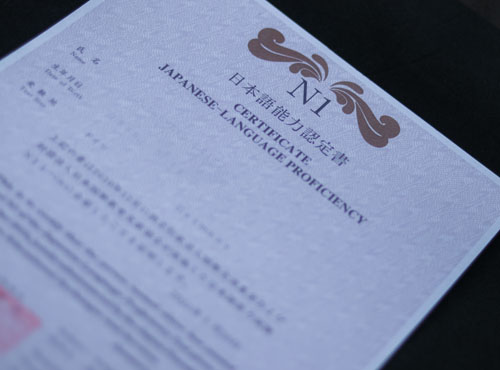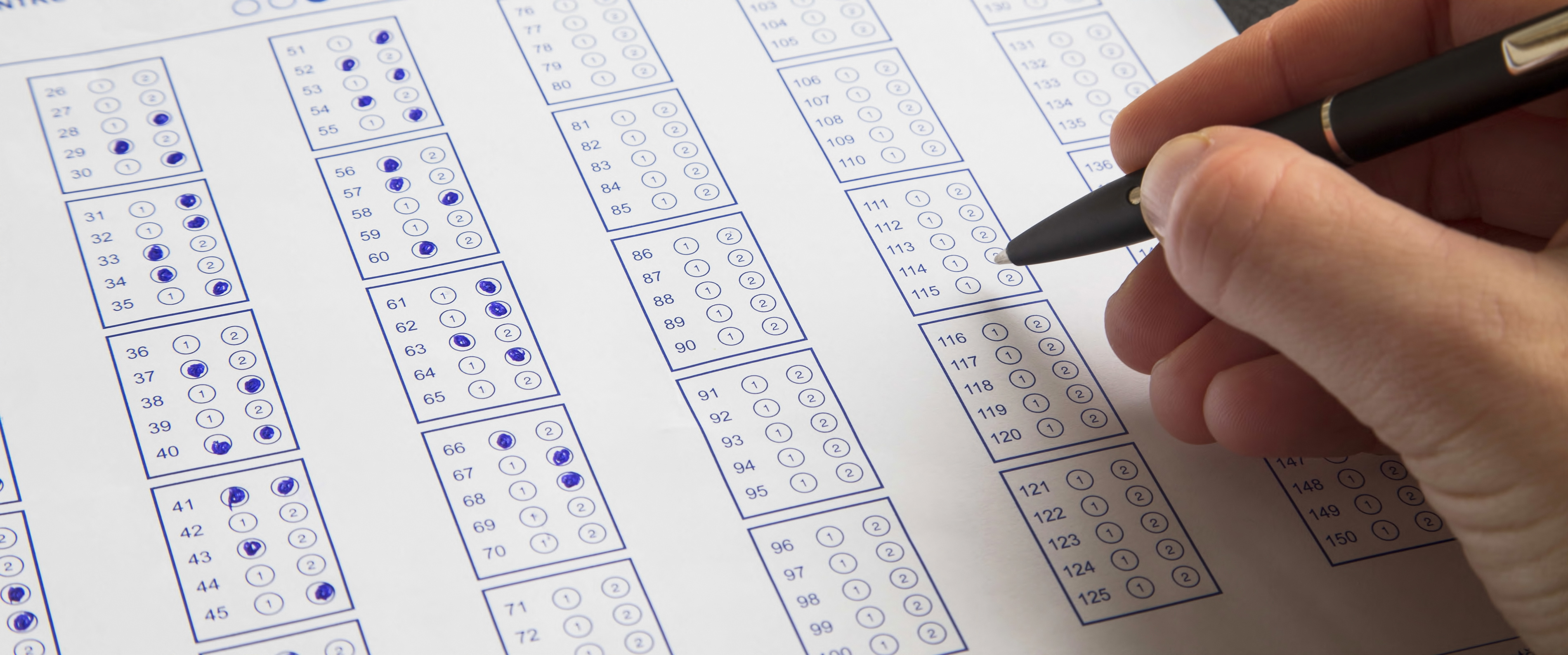Blog
2021.10.04
Japanese language
The Japanese-Language Proficiency Test – How to evaluate the certification
The Japanese-Language Proficiency Test (JLPT) is a standardized criterion-referenced test to evaluate and certify Japanese language proficiency for non-native speakers. It is probably the most well-known test for the Japanese language. It covers Kanji knowledge, grammar, reading skills and listening skills.
In this article we would like to focus on what the JLPT tests, who should take the test, how employers should evaluate JLPT certificates of employees / applicants and whether it is a certification for translators.

1. Levels of the JLPT
The JLPT is currently separated into 5 levels. Until 2009 it used to be 4 levels. Level 5 is the lowest level and level 1 the highest. When it comes to using Japanese at the workplace levels 5 to 3 can be considered insignificant. Most job adverts that require Japanese ability have a minimum requirement of Level 2.
Level 2 certifies that you can understand Japanese in everyday situations and in a variety of situations to a certain degree. Level 1 certifies that you can understand Japanese in a variety of circumstances.
2. What does the JLPT test?
The JLPT only tests your ability to understand Japanese. The test confronts you with several multiple-choice questions about grammar, Kanji characters, reading and listening comprehension. It is similar to the TOEIC Listening and Reading test for English.
The JLPT does not require you to speak Japanese or to write texts in Japanese, therefore it does not test the ability of being able to communicate in Japanese. Someone that passed level 1 should be able to read a Japanese newspaper and have no issue to understand workplace communication in Japanese, but we know nothing about their ability to express themselves in Japanese.

3. Who should take the JLPT?
As mentioned above the levels 5 to 3 are not suited for a professional setting. These levels can be useful for Japanese learners to track their progress or have a goal they can work towards. They might be nice-to-have qualifications on a resume but will not affect your job chances in a major way. As taking the test is not free and probably involves travel to the test site skipping the first three levels and starting with N2 as soon as you are on the necessary language level might be the most cost-efficient way.
If you are aspiring to work in a job that requires Japanese knowledge level 2 is usually the minimum required and level 1 is preferred. Some companies make it mandatory, and others make it optional but in general a candidate with a certification will be preferred over a candidate with no certification.
4. How should employers evaluate a JLPT certification?
As mentioned above the JLPT does not test the ability to write or speak in Japanese. Someone that has passed Level 1 might lack skills when it comes to Japanese conversation. With someone that passed level 1 or 2 you can expect a certain proficiency in the language in terms of reading and listening, however you might want to check the writing and speaking skills of applicants separately.
Also, you should have in mind that a JLPT certificate does not expire and usually you don’t take the test again once you passed it. If someone passed the examination several years ago their skills might have decreased over time.
Level 1 might be preferable but depending on the specific tasks of the job level 2 can be sufficient. If reading of difficult texts in Japanese is part of the job level 1 might be preferred but for internal communication at the workplace level 2 should be sufficient.
5. Is the JLPT a certification for translators?
No, it isn’t. The JLPT only tests the ability to understand Japanese. It does not include translation tasks. A good understanding of Japanese is a basic requirement for translating from Japanese, however you will require additional skills to be a good translator.
If you are looking for a translator you might want to check for education, experience, and qualifications in the field of translation on top of the JLPT. When it comes to patent translation, e.g., there is the NIPTA examination that provides certifications specific to patent translation in different language combinations and technical fields. Several of our translators have successfully passed this test. You can find a list of successful examinees here.
Some have talked about their experience when taking the NIPTA test in previous blog articles that are linked below.
- ● How I passed the NIPTA examination for patent translators – Part 1
- ● How I passed the NIPTA examination for patent translators – Part 2
- ● How I passed the NIPTA examination for patent translators – Part 3
If you have any questions about the JLPT or the NIPTA exam, please leave a comment. If you would like to get more information about our translation services, please contact us through our contact form.
Similar Posts
[jetpack-related-posts]



Leave a Reply